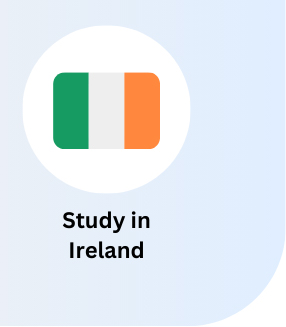When applying for higher education abroad, academic performance plays a crucial role. Every country has its evaluation system. For Indians, the performance is typically measured on a 10 CGPA scale.
However, if you plan to apply to a university in the USA, you must submit a US education system-recognized score, which is a 4-point GPA score. This makes it easier for the university to match your grades to their eligibility criteria.
While as a student, you do not have to convert the scores yourself in most cases, it is always a good idea to understand how the conversion works. It will help you have a better insight into your academic performance.
That said, let us understand more about these conversions – methods, important factors when you need to convert, and the role of evaluators!
What is GPA?
GPA or Grade Point Average is the standard grading system that calculates the score by analyzing performance in a semester. This scale has 5 alphabetic grades – A, B, C, D, E, F.
Grade A is considered the highest grade here and is equivalent to the Grade Point Scale of 4.00. The grade B corresponds to 3.00, while the grade F corresponds to 0.00.
What is CGPA?
CGPA or Cumulative Grade Point Average is used to calculate the complete academic performance of the student. This is calculated by taking an average of grade points for all semesters.
CGPA usually follows the 10-point grading system and demonstrates a student’s overall performance throughout the degree program.
CGPA to GPA and Percentage Converter: Formulas & Calculator
Applying to universities abroad often requires GPA in the 4.0 scale, but Indian students usually have CGPA (10-point scale) or percentages on transcripts. Understanding how to convert between Percentage, CGPA, and GPA is crucial for applications, scholarships, and accurate self-assessment.
1. Calculator For Converting Percentage to CGPA (10-Point Scale)
Most Indian universities follow a 10-point CGPA system. A commonly used formula to convert a percentage to CGPA is: CGPA=Percentage/ 9.5
Example:
-
Percentage = 85%
-
CGPA = 85 ÷ 9.5 = 8.95
Note: Some universities may use a different divisor (e.g., 10 or 9), so always confirm with your institution.
2. Calculator For Converting CGPA to GPA (4-Point Scale)
For international applications, especially in the U.S., the GPA is on a 4.0 scale. The linear conversion formula is: GPA=CGPA/ Max CGPA * 4
Here are the steps to convert a CGPA to GPA:
- Firstly, divide your CGPA score by 10(the maximum score).
- Multiply your result by 4. This number will be the GPA score
Here is a table of estimated conversions to give you a better idea:
|
CGPA Score |
GPA Score |
Approx. Grade |
|
1.0 |
0.4 |
F |
|
2.0 |
0.8 |
F |
|
3.0 |
1.2 |
F |
|
4.0 |
1.6 |
D |
|
5.0 |
2.0 |
C |
|
6.0 |
2.4 |
C |
|
7.0 |
2.8 |
B |
|
8.0 |
3.2 |
B |
|
9.0 |
3.6 |
A |
|
10.0 |
4.0 |
A |
3. Calculator For Converting CGPA to Percentage
Sometimes you need to revert CGPA back to a percentage: Percentage=CGPA×9.5
Example:
-
CGPA = 8.2
-
Percentage = 8.2 × 9.5 = 77.9%
Why is it Important to Convert CGPA to GPA?
Reputed universities in the USA receive applications from students across the world. Hence, they require a standard score to assess these applications and conduct a fair comparison. Converting a CGPA to a 4-point GPA ensures that your academic performance is compared with others on a familiar framework. This provides a fair shot for students from all over the world to showcase their performance.
How is CGPA calculated?
Before you start working on converting your scores, let us understand how Indian universities calculate the scores. Each subject you study carries a score value. The performance in each course is assigned a numerical grade point. The average of all these grade points is the CGPA score.
Popular methods of Score Conversion
When it comes to converting CGPA to GPA, you may come across various methods. While there is no perfect and right method to convert, here are some popular ones you can consider:
- Linear Conversion: This straightforward method simply divides your CGPA by the maximum possible score (usually 10) and multiplies it by 4. While easy, it may not accurately reflect your performance, as some institutions have tougher grading scales.
- Percentile-Based Approaches: These consider your rank within your graduating class. While fair, obtaining this information can be challenging.
- Weighted Averages: This method assigns different weights to courses based on their difficulty. However, implementing it requires detailed course descriptions, which might not be readily available.
Common Conversion Factors – What Works Best?
As discussed, there are numerous conversion methods, and hence, many universities have conversion factors to give you a starting point. These factors work as a ratio to convert your CGPA to GPA.
Dividing by 2.5 : This method assumes a maximum CGPA of 10 and a 4.0 scale, with each point equivalent to 2.5 points in the 10-point system. It’s a quick and easy approach, but it can disadvantage students from institutions with tougher grading scales. Imagine a student with a CGPA of 8.5 in a university known for rigorous academics. Dividing by 2.5 translates to a 3.4 GPA, which might not accurately reflect their exceptional performance.
Dividing by 20 or 25: These factors are used when the maximum CGPA is closer to 5 (e.g., a 5-point grading system). While it adjusts for a different maximum score, it still assumes a linear relationship between the two scales, which might not always hold.
Simplifying the Conversion Process with the help of Credential Evaluators
While you can grasp a basic understanding of these conversion factors, it requires a lot more to accurately come at the conversion. Navigating the intricacies of these academic scores can be daunting and pile up on your already lengthy list of to-dos in the admission process. This is where credential evaluators come in. These act as a bridge between foreign universities and your academic scores. Here is a glimpse of how these evaluators can be of extreme help:
- They are experts in the field: Professional credential evaluators are trained and experts in the field. They can understand the nuances of the grading system and course requirements better.
- Verification and authentication: Arranging for official transcripts from the university is vital and credential evaluators can help in the verification of these documents. This gives added credibility to your application.
- Course-by-course evaluation: Beyond just converting your CGPA, some evaluation services offer detailed course-by-course evaluations. This breakdown provides universities with a deeper understanding of the specific courses students have opted for and the level of difficulty involved.
Choosing the Right Credential Evaluator
When you start your conversion process, you will come across a plethora of credential evaluator services so keep certain factors in mind to ensure you choose the right match. Look for an evaluation service that has certified associations like the National Association of Credential Evaluation Services(NACES). A certification is proof that their work is recognized across the world.
Making the Decision – When to Convert and When not to Convert?
The idea of GPA conversion may feel like a daunting task. But do you need it? Here are a few pointers to understand and make the right decision:
When do you need to convert?
- You need to convert your score when the university has a stated requirement to submit a 4-point GPA score. This is mostly the case with universities in Canada, the USA and Europe.
- Universities that require a standardized test score like GMAT, ACT, or SAT, might ask for a converted GPA score as it helps in creating a holistic profile of the student.
- Lastly, if the chosen university is unfamiliar with the CGPA system, they may ask for a converted score to understand your academic achievements better.
When do you need not convert?
- Conversion is not necessary if the university is willing to accept the original grading system.
- If you are applying for a university that has a partnership with a university in your home country, it is obvious that they already understand your original grading system well, eliminating the need for conversion
Planning to study abroad? Explore student life, admission requirements, and top universities in top study abroad destinations to make the best choice for your future.
 |
 |
 |
 |
 |
 |
 |
 |
Connect with our Counselor
No matter how well you understand the conversions, converting your score for application is still a complex process. but, our experienced counselors at LilacBuds guide you at every step to make the process easy and smooth.
From determining the best conversion method to advising the right university based on your score, you can be assured we will make your application shine and stand out!
If you are applying for an international university and looking for help in score conversion, or any other aspect of MBA study abroad, contact us today and take the first step of attaining your study-abroad dreams!















